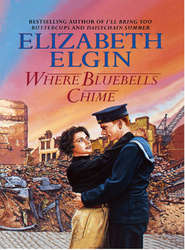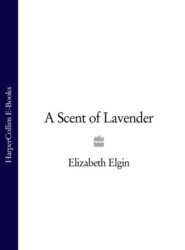По всем вопросам обращайтесь на: info@litportal.ru
(©) 2003-2024.
✖
The Linden Walk
Настройки чтения
Размер шрифта
Высота строк
Поля
She sighed again, wriggled herself comfortable in Auntie Blod’s sagging old chair that stood beside Auntie Blod’s fireplace in the cottage she had left two years ago. And now that thick-walled little house was Lyn Carmichael’s, or would be in eleven years’ time, when she had paid off the mortgage. Four hundred pounds she had paid for it and nothing in it had changed, except that with the war over it had been wired for electricity. So she had stored away her oil lamps and promptly put her name on waiting lists for everything and anything that would plug in. A vacuum cleaner, a cooker, a toaster, a fridge and – there was posh! – a washing machine. And this far, she had been able to buy nothing to plug in, though she was climbing the lists nicely, she was assured, when every once in a while she checked.
Yet soon she would have no need of such things. Soon, by summer probably, she would live at Rowangarth; have no need for the little four-roomed cottage. And that would be a pity, because she loved the safe, warm little house.
How many rooms at Rowangarth? She had no idea. Fourteen bedrooms, she thought, if you counted the attics. And loads of bathrooms. More than three hundred years of Sutton history, too. Being a Sutton was going to take a bit of living up to. Kitty would have taken it in her stride, because she had been born a Sutton; been used to living in a big house and having money. Loads of it and even more when Clementina Sutton, who once lived at Pendenys Place, died. Apart from Denniston, half her fortune had gone to Kitty’s father, Albert; the other half to Nathan, parish priest of All Souls and married to Julia. Happily married.
Lyn longed to hear from Drew. Pity there was no phone, here. Auntie Blod had never bothered, so that was something else Lyn was on a waiting list for. Not that it mattered much now, and Drew might ring her at work tomorrow if he could remember which duty she was on. She hoped he would. Just to hear him say, ‘Hi, Lyn,’ might rid her of the peculiar feeling of being suspended between delight and disbelief, because being engaged to Drew Sutton took a bit of getting used to. She had been sure enough about things this morning when they had kissed goodbye at York station. She had closed her eyes and clung to him and not cared at all who saw them. His lips had been warm, his kiss firm and lingering. It had been all right this morning, yet now she was alone, and desperately longing for bed.
Yet first she must finish her letter – the most important one, she supposed, she had ever written – and seal it in the pale blue airmail envelope ready to take to the post office to be stamped and sent flying on its way.
So having picked yourselves up from the floor, isn’t it the most marvellous news? Drew asked me to marry him and of course I said yes. Everyone was wonderful about it, Daisy most of all. I am to wear her beautiful wedding dress and be married at All Souls by Drew’s Uncle Nathan. Sometime in the summer, I think it will be, with you to give me away, Dad. I can’t wait for you both to see Rowangarth and as soon as we have fixed a date, you must put a big red ring around it on your calendar.
She laid down her pen again. This was not a letter from a young woman crazy with joy, because there was no joyousness in her words. Relief, more like, and gratitude, yet overshadowed by the niggling remembering he had said those words before to Kitty, and that he said, ‘Marry me, Lyn’ without saying he loved her.
‘Bed!’ she said out loud. She was weary for sleep. Today had started early with the five o’clock jangling of the alarm and she had travelled home by train then hurried to the hotel to take her smiling place behind the reception desk. It was past eleven, now; had been dark these past two hours. Her eyes pricked with tiredness. Very soon, her cablegram would arrive in Kenya. The letter could wait until tomorrow. One day more would make little difference.
She got to her feet, placed the guard over the fire, checked the front and back doors, then walked slowly upstairs to the little room with the sloping ceiling and the fat feather mattress that called her.
She slipped out of her clothes, leaving them to lie where they fell and wriggled into her nightdress. Then, without washing her face, even, she pulled back the cover to slip into bed.
And next morning when she awoke, she could not remember switching off the bedside lamp. Nor whispering goodnight to Drew.
‘Of course, Tilda,’ Mary Stubbs remarked, ‘Mr Catchpole is sure to do the florals – for the wedding, I mean.’
‘Well, of course,’ Mrs Sidney Willis, nee Tilda Tewk, conceded. ‘I grant you there’s no one in the Riding to touch Jack Catchpole when it comes to bouquets and sprays and buttonholes.’ She almost included floral tributes, but decided against wreaths when weddings were the topic under discussion. ‘My Sidney would be the first to acknowledge it, him being Parks and Gardens before he took over at Rowangarth. But he is an expert on orchids and will see to it that all’s well in the orchid house in time for the wedding.’
Rowangarth’s famed collection of orchids was back to its pre-war glory now it was no longer considered unpatriotic to heat the orchid house, which they had done with unrationed logs and a sneaky shovel or two of craftily acquired coke, when no one was looking.
‘There’ll be Tatiana’s wedding to consider, an’ all,’ Mary reminded. ‘Quiet wedding or not, the lass will want her bouquet and the guests,’ such as there would be, she thought not a little ungraciously, ‘are going to want sprays and buttonholes.’
‘Sidney has the matter in hand. He says there’ll be chrysanths in plenty, but little else for Mr Catchpole to work with. Mind, the church’ll be decorated for Christmas.’
What would be lacking in florals, Tilda considered, would be more than compensated for with holly and ivy.
‘But Tatiana isn’t having the church. She wants the Lady Chapel,’ Mary felt bound to point out.
‘My husband is well aware of the fact. He’ll be decorating the chapel for Christmas, an’ all. I shouldn’t wonder if he doesn’t pot up a little spruce – for Tatiana, I mean. Would be nice for her to have a tiny tree, he said. Tastefully decorated, mind.’
‘I wonder why the lass wants such a quiet do. It isn’t as if she has to get wed,’ Mary frowned.
‘As long as her Uncle Nathan says the words over them, Tatty won’t care what she’s wearing or that the chapel will be as cold as charity and there’ll be few presents.’
‘I’m bound to agree with you there,’ Mary conceded, she rarely agreeing with Tilda on debatable points if only to remind that she was Rowangarth’s parlour maid when Tilda had been but a kitchen maid. ‘But the lass has money enough in her own right, so her won’t worry overmuch about wedding presents. Her grandfather saw to it she wasn’t left short. And that grandmother of hers left Denniston House to her don’t forget, and the contents, though what made the old cat do such a thing I’ll never know.’
The late Clementina Sutton of Pendenys was never noted for her generosity; rarely made a kindly gesture.
‘Probably did it when she was half sozzled. She hit the bottle hard after her precious Elliot died. Folk reckoned he’d had a drink or two an’ all when he crashed his car and went up in smoke. Was seen in the Coach and Horses in Creesby with a woman who wasn’t his wife, though talk had it he left alone, later, an’ him so fuddled with drink that he couldn’t crank up his car.’
‘Well, he’s gone now, so don’t speak ill of the dead in my kitchen, dear.’ Tilda felt it necessary to remind Mary from time to time that she was now Rowangarth’s cook, and happily – thankfully – married to Rowangarth’s head gardener.
‘Wasn’t speaking nothing but fact.’ Undaunted, Mary set the kettle to boil. All Creesby and his wife knew what a wrong ’un Elliot Sutton had been. Indulged by his mother until he thought he could do no wrong. And when his wrongdoings sometimes surfaced, the foolish Clementina straightened things out, because most folk – even those badly done to – had their price. ‘They won’t be wanting tea upstairs. The Reverend has gone to see the Bishop and Miss Julia is at Keeper’s – talking weddings, no doubt. Her went to the bank, yesterday, and we all know what about. Drew’s girl will be choosing a ring, I should think. I’ve often wondered, Tilda, what became of Kitty’s ring. Opals and pearls, she chose, and may I never move from this spot again if I didn’t think at the time that opals were bad luck and pearls brought tears.’
‘I reckon it went with her to her grave. Miss Julia wouldn’t want it back – not if every time she opened that box and saw it, it reminded her of Kitty. She loved that lass.’
‘A right little minx, but no one could help loving her. And so beautiful. Her and Drew would have had lovely bairns.’
‘Lyndis is beautiful, an’ all. Kitty’s opposite, in fact. Maybe as well,’ Tilda sighed. ‘And there’s cherry scones left over from the christening in the small tin. They’ll be past their best if we don’t eat them soon.’
Tilda sat in the kitchen rocker and closed her eyes and thought about how it had once been in Lady Helen’s time when that lovely lady, God rest her, came out of mourning for her husband and gave her first dinner party in three years. A simple meal, yet Mrs Shaw – once Rowangarth’s cook and God rest her, too – had been days and days preparing and cooking and garnishing so that everything might go well at her ladyship’s first timid footsteps back into society.
Well, now there would be Drew’s wedding, and with food not nearly so hard to come by Tilda Willis would be able to show the folk hereabouts how well Mrs Shaw had trained her up to the status of cook. Mrs Shaw’s standards, Tilda thought smugly, would be maintained as that dear lady would have expected.
‘Butter on your scone, or jam?’ Mary interrupted the reverie.
‘I think it might run to butter – though only a scraping, mind.’ Butter was still rationed. ‘And I’ll have the first pouring, please.’ Rowangarth’s cook did not like her tea strong. ‘And don’t forget Miss Clitherow. Jam and butter on hers.’
‘Very well.’ Miss Clitherow had come to Rowangarth as housekeeper when Helen Stormont married Sir John. Old, now, she spent her days in a ground-floor room, dozing and remembering – and being grateful to Miss Julia and young Sir Andrew for letting her live out her time with the family she had served through good times and bad. And through two terrible wars, an’ all. ‘Jam and butter it is, poor old lass.’
Yet she still had her wits about her, Mary was forced to concede, in spite of being nearer ninety than eighty and a little unsteady on her feet.
‘And there’s Drew, an’ all,’ Tilda reminded.
‘Sir Andrew,’ Mary corrected primly, ‘is at Foxgloves, with Daisy. Be talking about the wedding, I shouldn’t wonder. I suppose there’ll be nothing, now, but wedding talk. Wonder when it’ll be?’
‘Your guess, love, is as good as mine, though I hope they’ll wait for summer.’
Summer, Tilda thought. A June wedding and Rowangarth garden in all its glory. Flowers everywhere, warm sunny days, a marquee on the lawn and the special white orchids flowering. And herself rushed off her feet and loving every minute of it.
Tilda Willis was a very happy and contented woman. She’d had a long and anxious wait, mind, but Mr Right had turned up in the form of an Army Sergeant who was guarding whatever went on at Pendenys during the war, though no one would rightly ever know, she sighed. But yes. A very happy woman.
‘I phoned Lyn, last night. Managed to catch her before she went home from work.’
‘And does she still love you, bruv?’ Daisy smiled. ‘It’s still on, then?’
‘Love me? I – I suppose she does. Actually, Daiz, I didn’t ask.’
‘Didn’t ask, you great daft lummox; didn’t tell her you loved her?’
‘Actually – no. But she knows I do.’
‘Maybe so, but a girl likes to be told. Often!’
‘Sorry. Just that it’s going to take a bit of time getting used to it. It happened so suddenly. One minute I was escorting the lady home and the next, there I was, engaged.’
‘Hm.’ That hadn’t been Lyn’s version, Daisy considered, but what the heck? ‘She’ll have written to you?’ Letters could say more than words.
‘She has. In the post. I should get it tomorrow. And she’s written to Kenya, too. Sent a cable first, of course.’
‘I wish she was on the phone. I’ve got to wait for her to ring me. There’s so much we have to talk about.’











